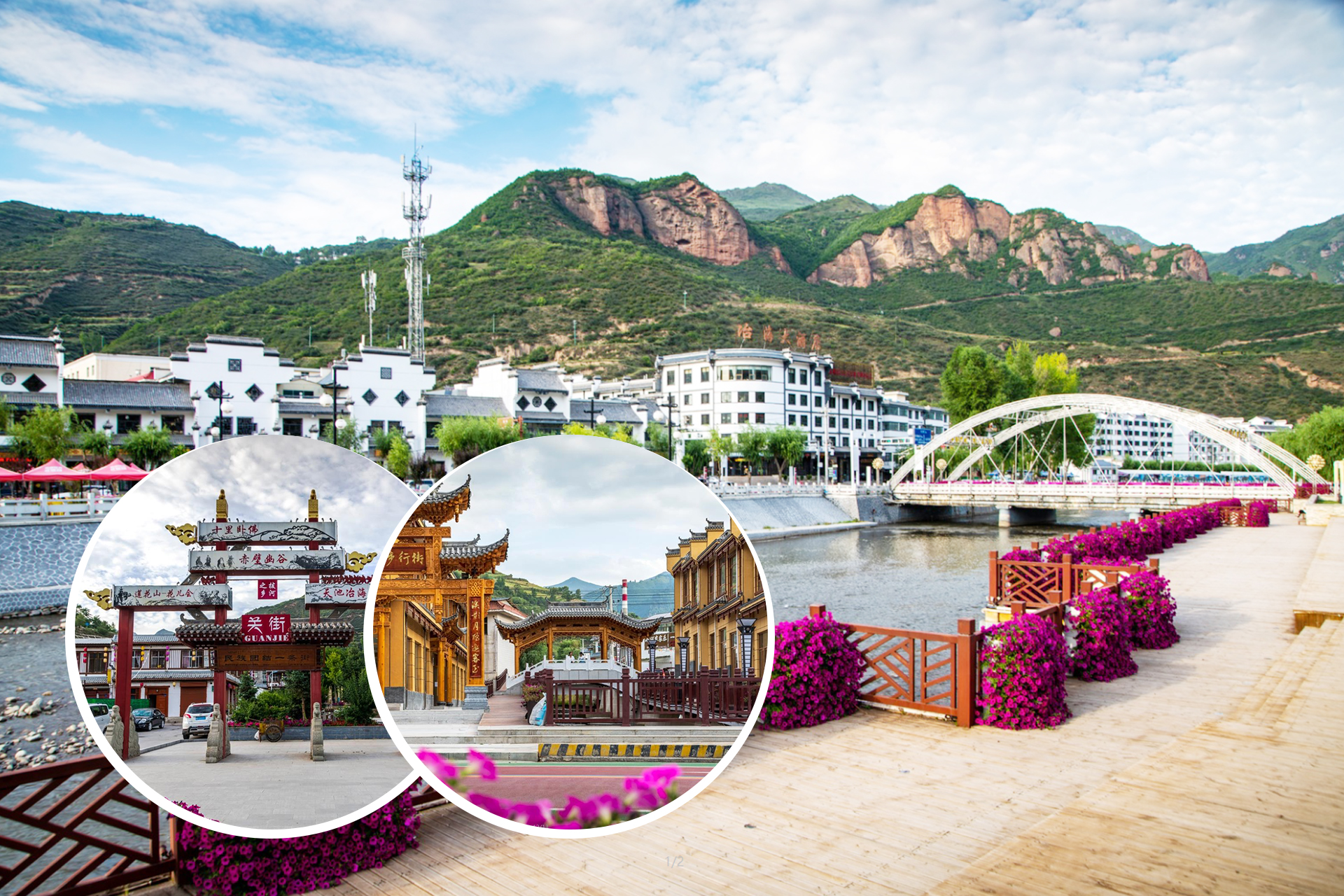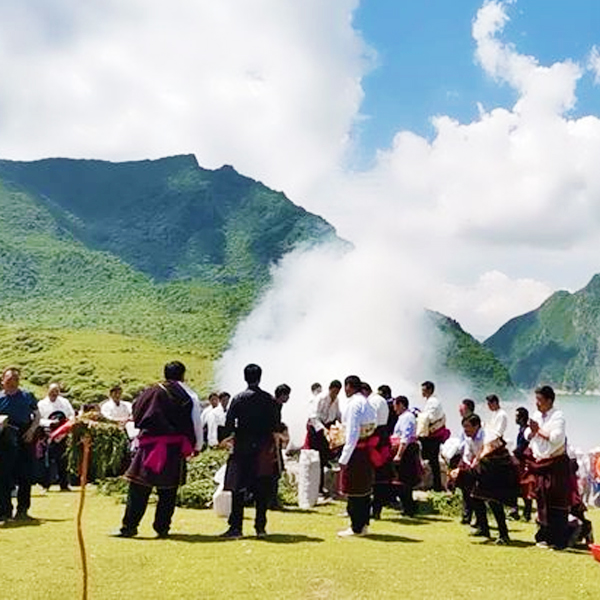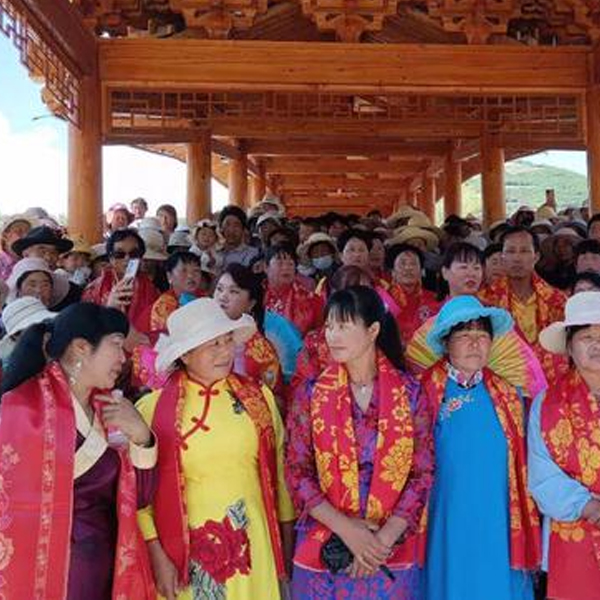Yeliguan, the name and place name of ancient passes in China, is located in Lintan County, southern Gansu Province, China. In ancient times, it was an important gateway to Tibetan areas and an important channel for tea and horse trading in Tibetan areas and Gansu areas. Guankou got its name from the seven divisions of Yeli under the rule of Tuyuhun State in the 3-7th century. This area preserves good natural vegetation and water source conditions, as well as rich multi-ethnic cultures. The appellation history of "Yeliguan" can be traced back to about AD 400-432 (Eastern Jin Dynasty, Northern and Southern dynasties). About 1560 years ago, it was the territory of the Sunyeli tribe of Tuyuhun (246-317 [2]). After Yeli's brother Yeyan ascended the throne, he appointed his younger brother Yeli as the Bolu General. His tribe was stationed in the area of Baishi Mountain for nomadic hunting, and gradually settled here (forming the earliest Yeli tribe).
At its heyday, the Yeli tribe had three upper Ye tribes within the gorge and four lower Ye tribes outside the gorge, collectively known as the Yeli Seven Tribes. (The jurisdiction extends from Yangsha Township in Lintan County and Qiagai Township in Jonê County in Gansu Province in the south, to the banks of the Tao River in the east, to Meiren and Meiwu Townships in Hezuo in Gansu Province in the west, and to Hezheng County and Kangle County in the north. During the 6-10th century (Sui and Tang Dynasties), Tuyuhun was attached to the imperial court, and some of its people were moved to the Central Plains, and some of them were returned to Bailan (i.e., Ledu in Qinghai). In 1368 (the early years of the Hongwu reign of the Ming Dynasty), Muying led his troops to recapture Taozhou, and immediately established trading centers in provinces such as Hezhou, Taozhou, and Minzhou to exchange tea and horses. This area was subsequently opened up as an ancient pass for tea and horse trading, originally known as Yemen Gorge, and several checkpoints were set up in the areas of Daling Mountain and Bajiao Mountain to inspect past tea shops.
The area around Guanjie was gradually opened up as a market by the government and merchants, and a small number of Han people settled there, claiming to be Guanli. The combination of the two gradually formed the name of Yeliguan. Yeliguan National AAAAA Tourist Attraction is located in the northeast of Lintan County, 160 kilometers away from Lanzhou, the capital of Gansu Province in the north, and 90 kilometers away from Hezuo, the capital of the autonomous prefecture in the southwest. With convenient transportation, it is an ideal summer resort in the province. The tourist area covers an area of about 300 square kilometers, with an altitude of 2219-3926 meters, and an annual average temperature of 5.1-6.7 ℃. The climate is warm and humid, cool and pleasant. The scenic spot is beautiful and picturesque, It is known as the "Shanshui Yili Pass, Ecological Grand View Garden". The beautiful Tianchi Yehai Lake and the marvelous Chibi Valley, a national geological park, constitute a dangerous, steep, strange, beautiful and secluded Natural landscape and become a typical plateau eco-tourism resort.
Yeliguan, the name and place name of ancient passes in China, is located in Lintan County, southern Gansu Province, China. In ancient times, it was an important gateway to Tibetan areas and an important channel for tea and horse trading in Tibetan areas and Gansu areas.
Guankou got its name from the seven divisions of Yeli under the rule of Tuyuhun State in the 3-7th century. This area preserves good natural vegetation and water source conditions, as well as rich multi-ethnic cultures.





